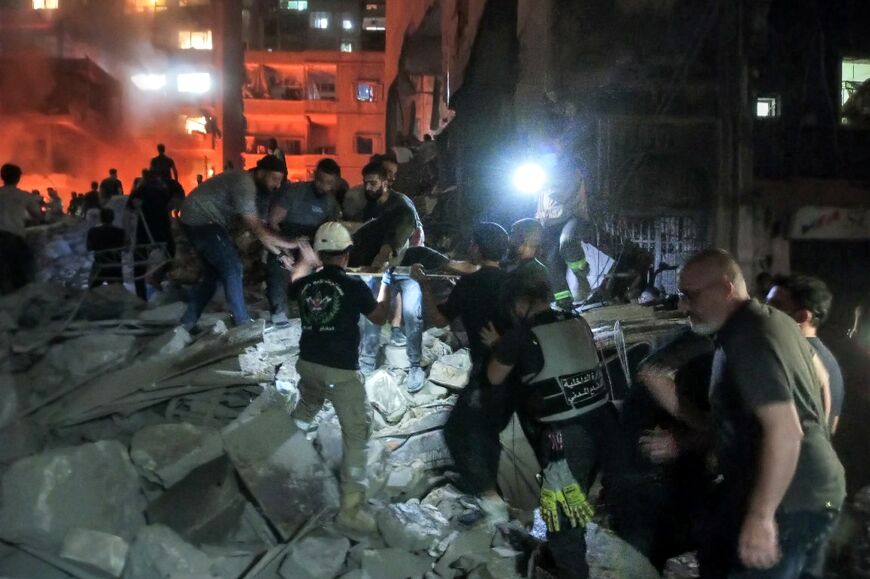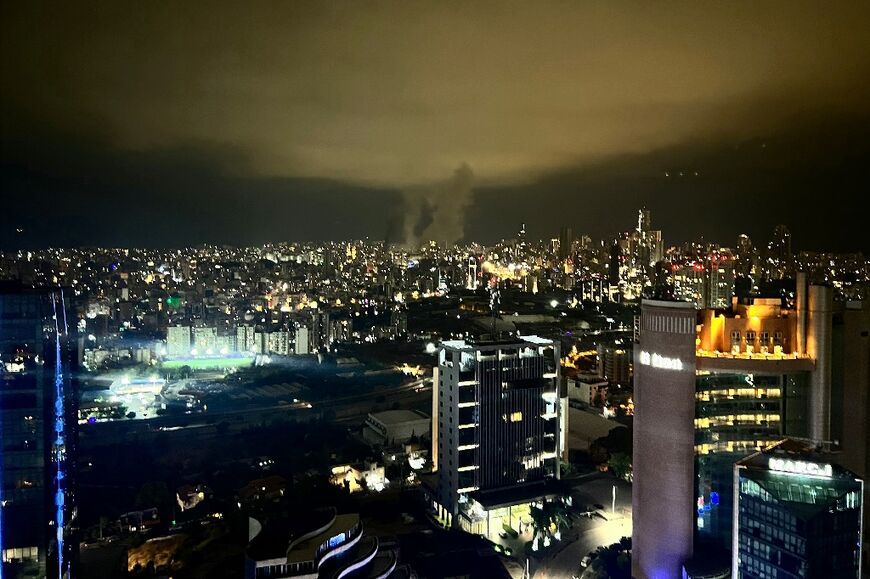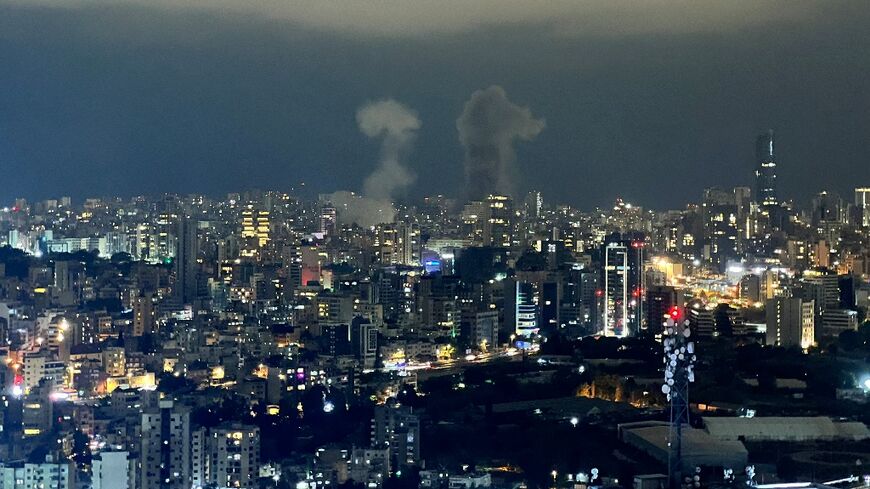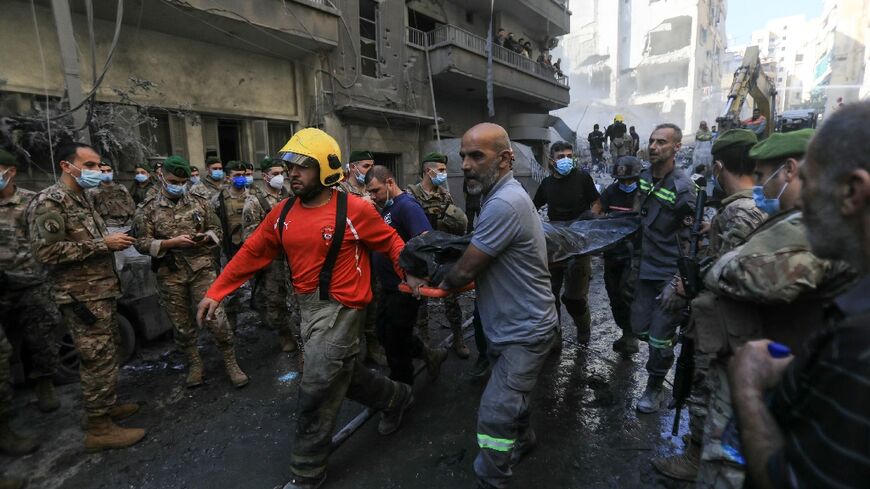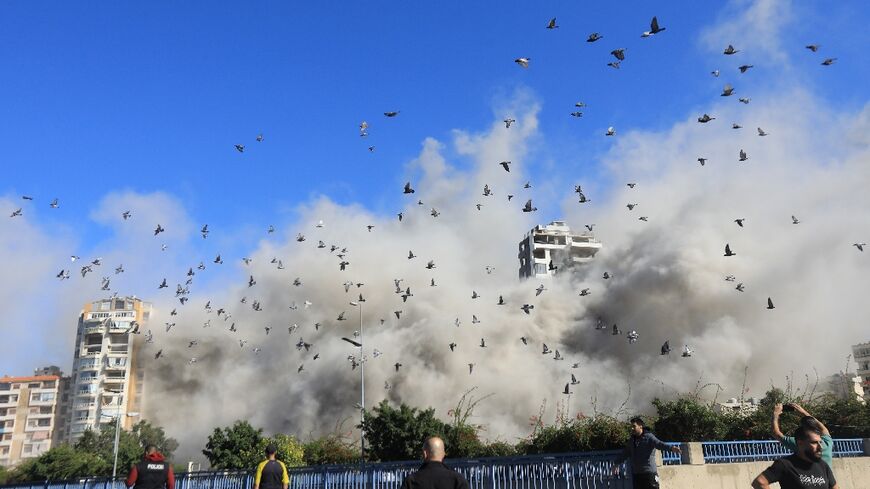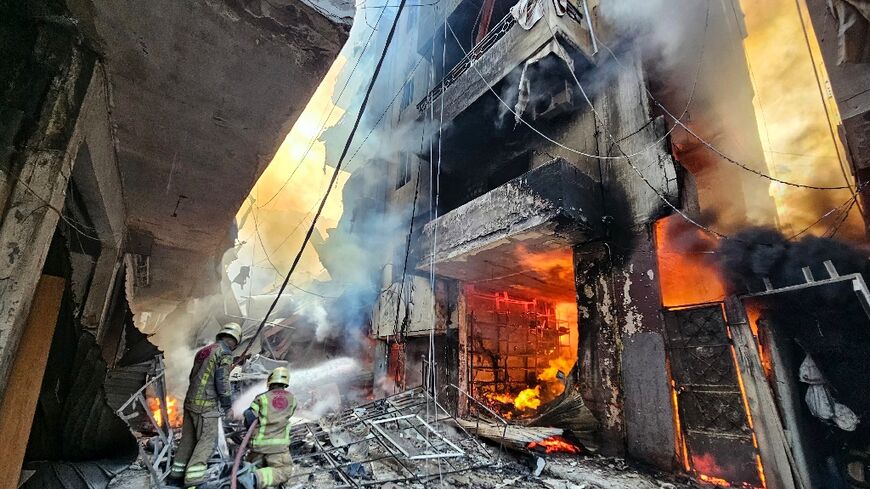'Like a quake': Beirut shaken after deadliest strikes on centre
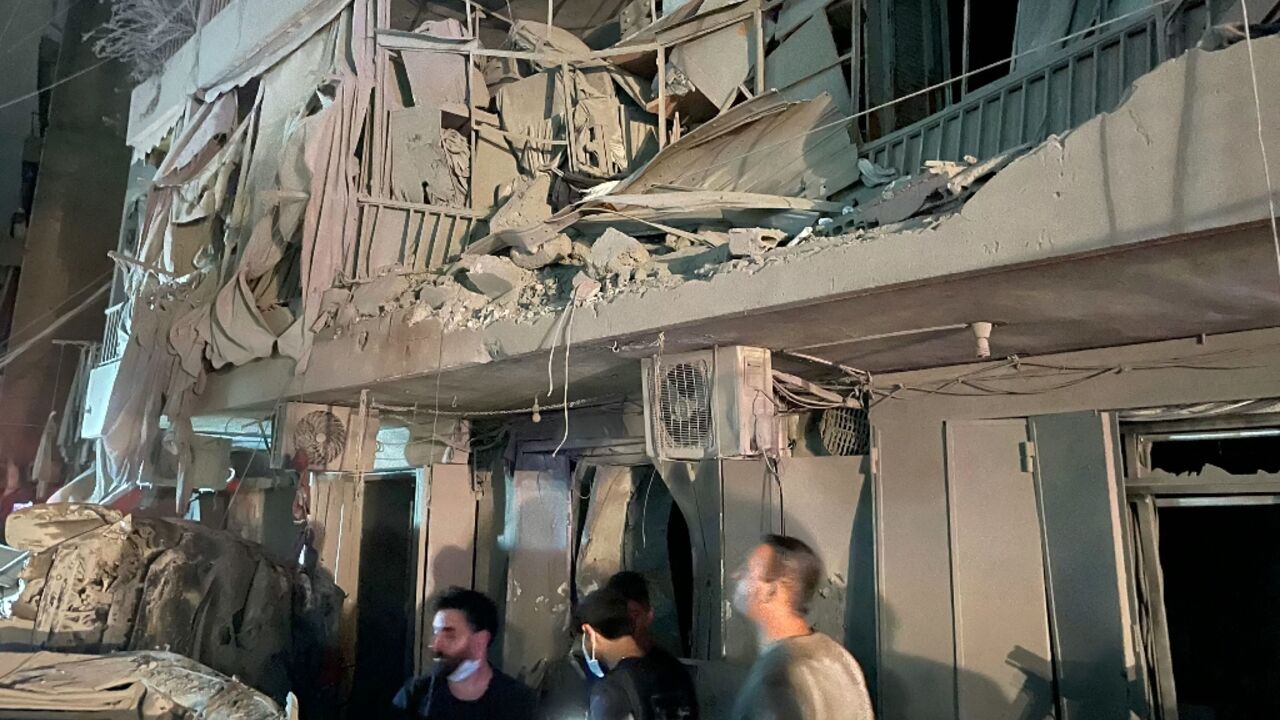
Loud bangs sounded, thick columns of smoke rose and ambulance sirens rang throughout the night as deadly Israeli strikes hit residential areas of central Beirut on Thursday evening.
The Israeli attacks hit two central Beirut locations, killing 22 people and injuring over 100, Lebanon's health ministry said.
They were the deadliest such attacks to target central Beirut since Israel intensified its bombardment campaign on the country two weeks ago.
In the working-class district of Basta, whose inhabitants are largely Sunni and Shiite Muslim, two old buildings of three or four floors had collapsed.
Around a kilometre away (less than a mile), a Beirut resident was still reeling from the terrifying sound of the blast.
"I'm not scared usually, but it was like an earthquake," she said, adding that she wanted to flee the area.
Rescuers pointed large spotlights at the rubble to see in the dark.
Dozens of men, some in yellow vests, worked to clear the debris with shovels, some stepping in mud after a pipe appeared to have burst.
"Watch out, there's a hole over there," one called out.
Several wounded people lay by the side of the road, while others collected their clothes in bags as they prepared to flee the area.
- Injured hand -
Israel has repeatedly pounded Beirut's southern suburbs, the bastion of Lebanon's Iran-backed Hezbollah movement, over the last two weeks but Thursday's raid was only the third time the city centre has been targeted.
At the site of the second strike in the Nweiri neighbourhood, a brand new eight-storey building had been damaged.
Ayman, who lives across the street and declined to give his last name, said he "heard three explosions".
"The kitchen windows exploded... and my son started crying," he said.
Firemen worked to put out the blaze after the strike on what the National News Agency described as a "residential building".
They worked to evacuate residents from the upper floors using a ladder.
Hassan Jaber, who lives in a nearby building, said he was wounded in the hand and leg.
"I went out to throw out the rubbish, opened the door of the lift and the strike hit" and he was propelled to the ground, he said.
"It was such a big shock," he said, bewildered.
The atmosphere was tense after Hezbollah and the Lebanese army set up a security cordon around the area.
Hezbollah said it was cancelling a press conference planned for Friday, "in view of current developments".
- Other strikes -
After almost a year of cross-border fire between Israel and Hezbollah, Israel increased its air strikes against what it said are Hezbollah targets in Lebanon on September 23.
Since then, Israeli strikes have killed upwards of 1,200 people and displaced more than one million, according to official figures.
A massive Israeli strike on September 27 killed Hezbollah leader Hassan Nasrallah in the southern suburbs, for which there was no Israeli military warning.
A five-minute drive away in another part of town, another person said the strikes sounded incredibly close.
Two other strikes have hit central Beirut in the past few weeks.
Earlier this month, Israel carried out a deadly air raid in Beirut, hitting an emergency services rescue facility run by Hezbollah, killing seven workers, the service said.
That strike was a short drive away from a commercial area in downtown Beirut and the seat of government.
On September 30, an Israeli drone strike on a building in Beirut's busy Cola district killed three members of the Popular Front for the Liberation of Palestine, the leftist armed group said.
The damaged building can be seen from the main highway bridge linking the Beirut city centre to the airport.


